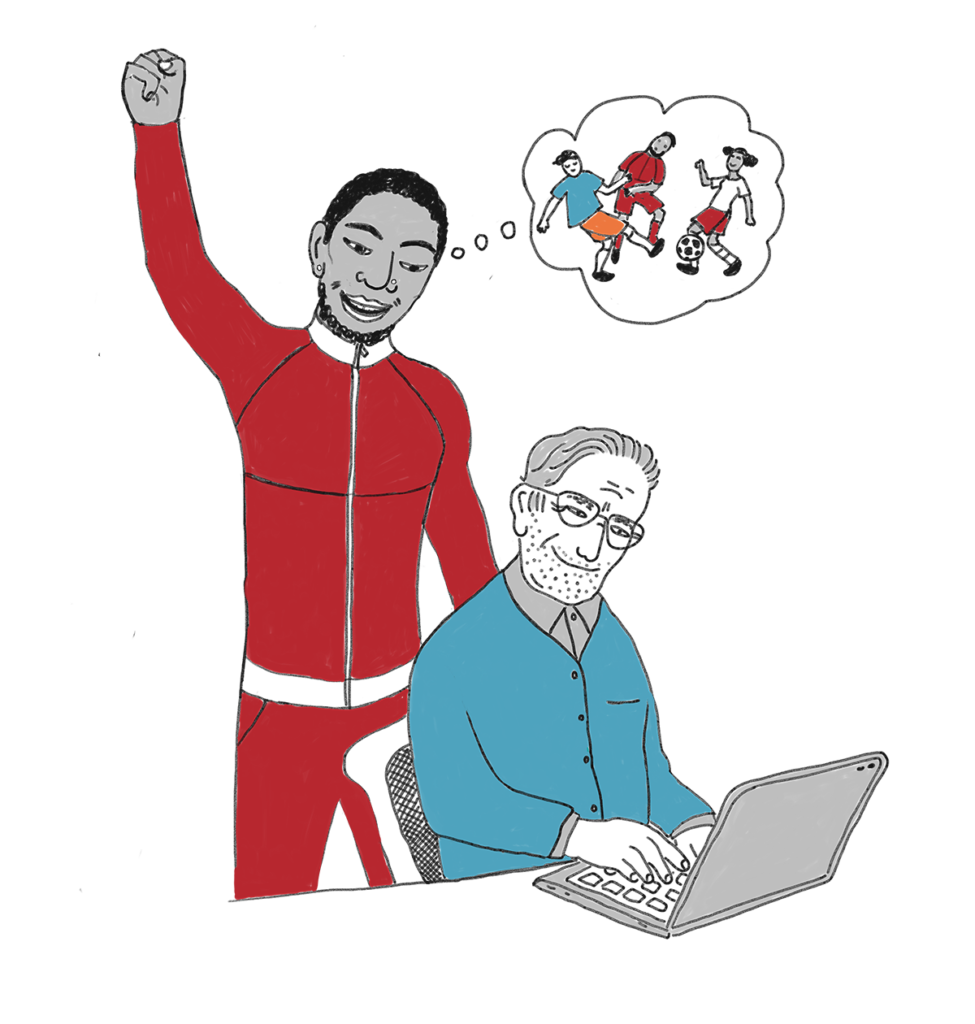Daniel King was the Communications Manager at Fun Palaces for 7 years, here he takes a moment to reflect on his time with the team and his experiences and learning within the role.
This week, I’m saying goodbye to freelance project Fun Palaces after 7 years. Since 2014, through both freelance years and alongside full-time jobs, I’ve worked planning and delivering the communications strategy for them.
I got involved with Fun Palaces when co-directors (and co-founders) Sarah-Jane Rawlings and Stella Duffy brought the project to the Albany arts centre, where I worked. Fun Palaces started as an idea to celebrate the centenary of theatre director Joan Littlewood, people would come together on Joan’s birthday weekend to share the skills and culture in their communities, and on their own terms …
I was in my early twenties when Fun Palaces started, the co-directors more or less handed the communications over, typical of this generous project that believes in the genius in all of us. In year one, I remember going off filming with Brenda Emmanus for BBC, and to interview Jude Kelly at Southbank Centre and Murray Melvin at Theatre Royal Stratford East, no clue – at all – what I was doing. I’d ring up local radio stations and explain the project concisely as ‘like Comic Relief without the fundraising’. I learnt, and quickly.
At the beginning, there was little time or resources – in evenings the team would message each other on a busy and passionate WhatsApp group (I’d love to read the transcript!) to discuss how to get the word out. We’d manage communications ‘crises’, after another of Stella’s brilliant press articles created a Twitter storm, between meetings at our other jobs, or when we could get a signal on tube journeys, and spent tea breaks chatting to brilliant Fun Palace Makers. If someone had an idea, we’d just say ‘yes’ and do it – making change, not administration, was the ethos. One of my favourites was to commission illustrator Emily Medley to sketch people at Fun Palaces – they became our brand.
One of the brilliant complexities with Fun Palaces was explaining what it is and does. It doesn’t fit traditionally or comfortably anywhere. People often say things like ‘what do you mean everyone an artist? How can everyone be an artist?’ (after reading our tagline). This was such a joy – the boldness and sometimes ambiguity in the project, and its language, ignited enough friction for thought, discussion and for minds to be changed.
Out of this ethos, and as Joan Littlewood said ‘the rock of change’, what Fun Palaces became is a juggernaut campaign for cultural democracy, with an annual mass-participation weekend taking place in communities across the globe, national Twitter trends and press features have been made, and more than 600,000 people have been involved.
Fun Palaces radically changed my understanding of how cultural organisations and projects can be run, how communication works at a local and national level, and what culture can be for. Its co-founders are exceptional, authentic and brave leaders – I owe them both, and all of the people who work with and make Fun Palaces, so much. Whilst this style of work might not be for everybody, we could all try, especially as we rebuild from the pandemic, being open to change and saying ‘yes’ a little bit more.

